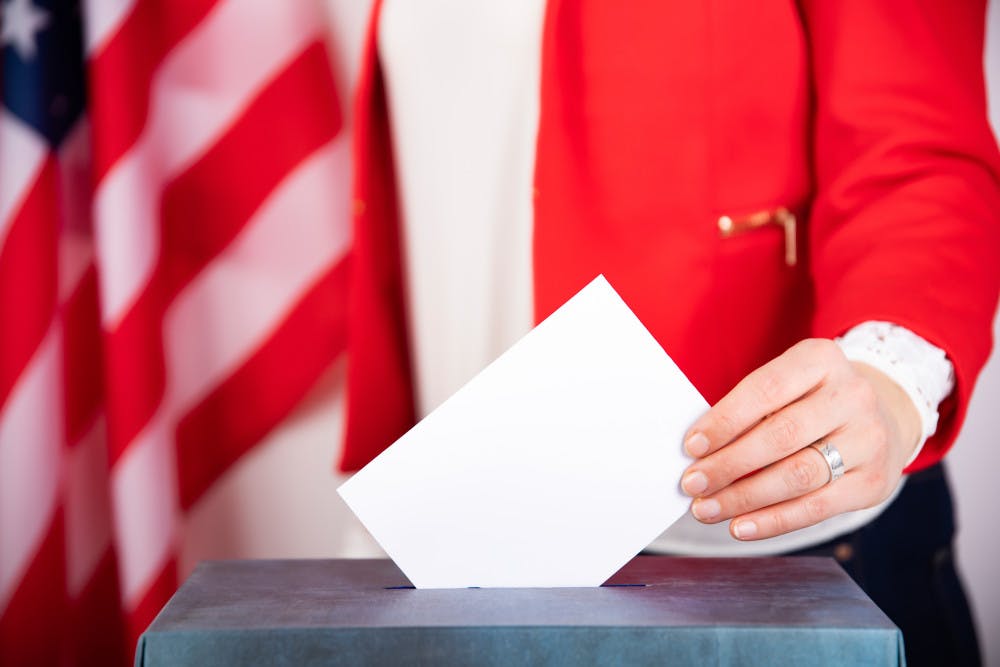By Rashmeena Abbasi
Since his reelection campaign kicked off in August 2019, President Donald Trump has shown increasingly less tolerance for American minorities. In one conversation with talk show host Sean Hannity, Trump lamented not being able to install harsher immigration policies regarding “invasions” at the Mexico-United States border. He commented, “Other countries stand (at the border) with machine guns, ready to fire… It’s a very effective way of doing things.”
Within the same week of this interview, a mass shooting occurred in El Paso, Texas that targeted the American-Latino community. The shooter was detained and police found a manifesto written by the perpetrator against immigrant “invasion.” It was evident in the phrasing of the manifesto that the shooter looked up to our president.

Unfortunately, despite the severe backlash Trump faced from the public and the press for his anti-minority rhetoric, he did not face any legal charges for his actions. His hateful words were protected under the First Amendment. Trump proudly continues his campaign of hate without remorse, deepening divides between the diverse communities of citizens in the United States.
This begs the question: what is the true impact of free speech? Does its current implementation truly bring liberty and justice for all?
The First Amendment serves as the country’s pride and joy. But now more than ever, a strict interpretation silences minorities that are already oppressed by censorship.
The First Amendment protects the right of free speech for all Americans, but it does not imply that all speech is legally acceptable. On one hand, speech that incites violence, the defamation of character and true threats are not protected under the First Amendment. On the other hand, hate speech is legally acceptable and even defended in American courts.
The American Civil Liberties Union (ACLU), a fervent supporter of the First Amendment, has filed over one hundred cases against Trump since his inauguration. The organization has become a major opponent against Trump’s anti-immigrant policies, such as the mass deportation of illegal immigrants and Muslim bans. At the same time, the ACLU has been taking on cases to defend white nationalists, Neo-nazis and Ku Klux Klan members. Its goal is to debunk hateful rhetoric by protecting the platform where every individual has the right to participate in an uncensored, universal discussion.
The power of words has grown in the past few years with the increasing popularity of social media. Although these platforms intend to provide a safe space where different cultures and ideas meet, this is not always the case.
Trump is infamous for his unapologetically racist remarks on Twitter. To more than 70 million followers, Trump has unabashedly taken to Twitter to tell a group of four minority Congresswomen to “go back” to their countries, refer to COVID-19 as the “Chinese virus” and call out Democrats for assisting “criminals” that are coming to the United States from Mexico.
In the true spirit of the First Amendment, Americans across the country have banded together to condemn Trump’s prejudiced speech. But the White House supported Trump’s Islamophobic tweet, Americans across the country are boycotting Chinese-American businesses and undocumented immigrants are unforgivingly placed into inhumane conditions at detention camps. Trump’s unrestricted, hateful rhetoric is proof that words hold a tremendous amount of power in the 21st century.
Perhaps it is time to take a second look at the First Amendment and how America interprets the understanding of the freedom of speech. Our goal as Americans, to debunk hateful rhetoric with uncensored conversation, is dependent on the notion that all speakers are considered equal. Unfortunately, that is not the case, as some undoubtedly have a more significant platform than others. So what can we do?
Limiting the expression of free speech in one way only opens the door to more limitations in the future. What we can do is use our legal system to hold abusers of the First Amendment accountable for their words, especially when speakers hold positions of power that allow them to turn these words into action. Until then, the freedom of speech will continue to serve under Trump’s presidency as a weapon against the fundamental rights of minority communities in America.







